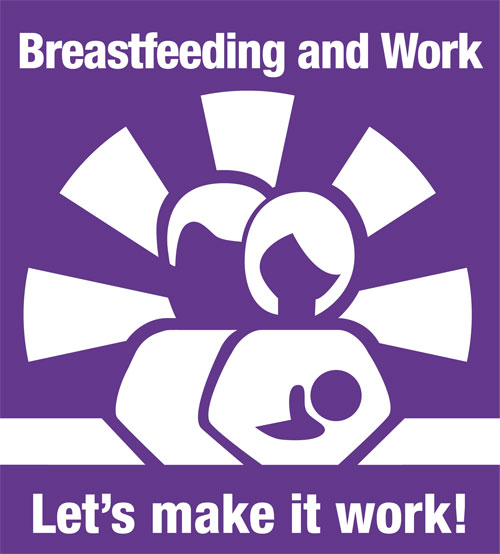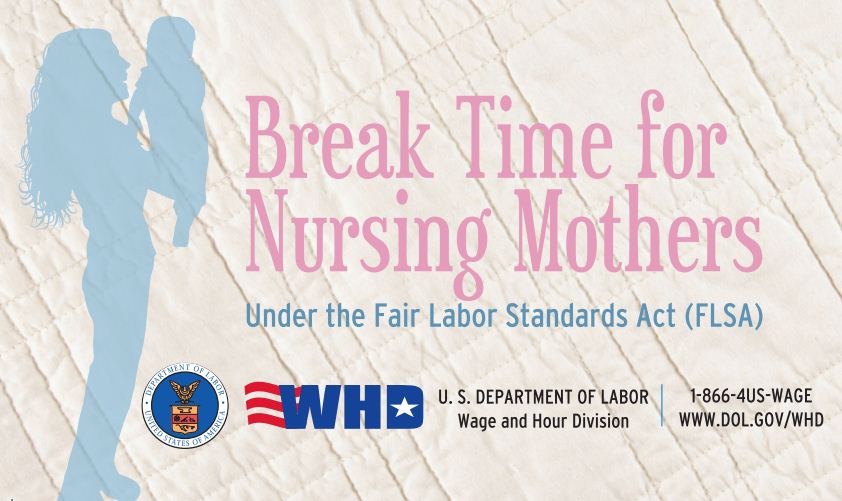Happy World Breastfeeding Week! August 1- 7 is dedicated to promoting international breastfeeding. Organized by the World Alliance for Breastfeeding Action (WABA), World Breastfeeding Week began in 1991 as “one unique unifying social mobilisation event that can build solidarity and action” according to the event’s original website. The theme this year is Breastfeeding and Work: Let’s Make It Work.
The stated objectives of World Breastfeeding Week 2015 are:
Galvanise multi-dimensional support from all sectors to enable women everywhere to work and breastfeed.
Promote actions by employers to become Family/Parent/Baby and Mother-Friendly, and to actively facilitate and support employed women to continue breastfeeding.
Inform people about the latest in global Maternity Protection entitlements, and raise awareness of the need to strengthen related national legislation and implementation.
Strengthen, facilitate and showcase supportive practices that enable women working in the information section to breastfeed.
Engage with target groups e.g. Trade Unions, Workers Rights Organisations, Women’s groups and Youth groups, to protect the breastfeeding rights of women in the workplace.
WABA states there are three key elements that determine success for women who work and breastfeed: time, space/proximity and support.
 Time refers to adequate paid maternity leave to establish and support breastfeeding, paid breaks or reduction of work hours for breastfeeding and flexible hours to allow for more time with their babies or to pump.
Time refers to adequate paid maternity leave to establish and support breastfeeding, paid breaks or reduction of work hours for breastfeeding and flexible hours to allow for more time with their babies or to pump.
Space/proximity addresses keeping mothers and babies physically close to one another to facilitate adequate nursing, a safe location for breastfeeding or pumping and a work environment that is clean and without harmful chemicals.
Support includes information about laws and benefits related to pregnancy and breastfeeding, positive attitudes by employers and co-workers regarding not only breastfeeding, but pregnancy and motherhood as well and elimination of employment discrimination around maternity and breastfeeding.
For US based doulas, below are some resources related to the laws that affect employed nursing mothers:
The US Department of Labor published a blog in 2013 in honor of National Breastfeeding Month called, “Know Your Rights: Breastfeeding in the Workplace” that states that the “Fair Labor Standards Act requires breaks for mothers to express breast milk during the workday” for up to a year after birth and specifies the requirements for the space. There is an entire section of the Department of Labor’s website dedicated to nursing mothers: http://www.dol.gov/whd/nursingmothers/.
To find laws by state that affect pregnant and nursing women, consult this handy and searchable map.
How you can get involved in World Breastfeeding Week:
Social media is a powerful communication tool and there are several ways to use social media to support the goals of World Breastfeeding Week:
• Change your profile picture or simply share the World Breastfeeding Week Logo (available in the Action Folder in in various size, colors and languages).
• Use these hashtags (individually or in combination): #WBW2015 #breastfeeding #MaternityProtection #WomenandWork in your posts about breastfeeding.
• Share the World Health Organization’s Infographic about their 2025 breastfeeding goal.
• Share information on breastfeeding laws and rights in your country and state/province via social media. Use the #KnowYourRights and #breastfeeding hashtags.
• Follow WABA on Twitter and/or Facebook to be part of the conversation and get great content to share.
Beyond social media, you can:
• Write a post about breastfeeding and work for your own blog. You can use the resources and images suggested above for social media or tell your own story.
• Write a Letter to the Editor of your local newspaper about breastfeeding and work.
After World Breastfeeding Week:
• Continue the conversation about the importance of time, space/proximity and support to successful breastfeeding while working. This can be person-to-person in your community, in your prenatal meetings with clients or via social media.
• Educate clients on their rights and the laws that affect them as related to breastfeeding and work.
We’d love to hear how you are participating in World Breastfeeding Week!
— Adrianne Gordon, CD(DONA), MBA

